Kolade Mosuro
A
t the age of twenty-six, he was a deliberate choice of youth to the crown. This was in 1960. The kingmakers may have looked ahead to their assignment for vitality, creativity and modernity. They were looking for transformation. He carried the assignment with aplomb, and the good Lord blessed him with longevity so that he was not only transformational but he was also reformative and consequential. At his death at 91, he had been in office as the Awujale of Ijebuland for sixty-five years; long enough to have combined office with service and controversies, colour with regal splendour, and deliver performance on high nodes. He was born to rule and died a deity.
Nigeria in 1960 was laden with activities. At the top of the list was the spirit of liberation. Independence hung thick in the air. Men of various colours, on the stump, assured that the future was bright in our hands. The Ijebus caught the bug. A new king, encircled by a rejuvenated kith and kin, was going to be around to gallantly carry the land with pride and dignity. With a new king, the Ijebus were ready to be borne aloft into a new and higher realm.
As soon as Oba Sikiru Kayode Adetona assumed office, the Chiefs around him, men old enough to be his father or grandfather, immediately tested his mettle. The Chiefs had thought that being young, they could pocket him, hold him by his nose, push him around and direct his path. They soon found out that there was only one king and the king was young, firm, clear-sighted, independent and audacious. Youthfulness and courage had coalesced to provide the Ijebus with an instant icon, which was the beginning of his people’s affection for him. For that courageous act, the national interest in him also grew. He took command of his crown from the start and held the reins to the end. A new king was in town, and this is where his story began.
Growing up as a young boy in Ijebu-Ode, Oba Daniel Adesanya, Gbelegbuwa II, his predecessor, used to visit the Chief Imam of Ijebuland, Alhaji Kadiri Borokinni, who lived opposite my grandfather’s residence at Ita Ntebo. I noticed that all men around went flat on the ground and the women on their knees at the presence of the king. That was respect and power. It was a spectacle to experience the deference with which the king was held and treated. In those days, it was a rarity to see the king. So, it was a singular fortune for me as a young boy to see the king when he came around. More often, the city’s contact with the king was with the town crier who sounded the gong to say what the king said in private or summoned the town for a king’s assignment, usually communal repairs or road building. The king lived in his palace in the centre of town, and his sphere of influence spread across the city. I was a very, very distant dot to the king.
Coincidentally for me, Oba Adetona took temporary accommodation directly opposite my parents’ house at Adeniji Street, Ibadan, anytime he came for cabinet or House of Chiefs meetings or some social functions in Ibadan. I was never privy to what transpired in the house other than knowing that my parents, by duty and custom, would go to pay obeisance to the king anytime he was around. All I saw was that the king always walked stridently to his car and carried an elegant look even from afar. He stood tall, dignified and handsome. There was just that aura about him. His carriage made you look at him with respect, admiration and appreciation. I aped his carriage from afar.
In addition to the statutory Chieftaincy councils available to him to provide support and counsel while in office, Oba Adetona had around him a ring of loyal young men; an inner court to provide ideas, or as business acolytes, and or to provide play, a bon viveur, a schoolboyish atmosphere as a vent for youthful exuberances. Remember, he came to the crown at twenty-six, and youthfulness would come through no matter the shield to the crown. There was a bit of Las Vegas in their midst. Whatever they did remained where it was done. Occasionally, their excesses leaked to the town, and the town frowned at them, taking a very dour view of their conduct. But they could not do much other than frown and grumble. The land did not like it, but he weathered through.
He saw from the early stages that the crown carried enormous responsibilities and prestige but was acutely lacking in financial support to drive and sustain the office. Things had changed. For example, the people longed to see the king, and the king desired to step out to bring the crown closer to the people. This required an extensive wardrobe. That alone was expensive and was modestly catered for. For financial support, he was either going to go cap in hand begging the state or fend for himself. He chose the latter. The land revolted against his running a business. It was anathema to the office, totally demeaning of the king, an Awujale for that matter, to be engaged in business. The noise was loud to the king’s unorthodoxy, and the opposition to him tumultuous, but there was no going back. The young king was defiant. He engaged successfully in business, and in later years, his success may have created his financial independence and laid the foundation for his golden era, which lay ahead.
The Oyo Kingdom may have drawn some lessons from the Awujale’s ascension to the throne. They, too, like the Ijebus, chose a young and educated man, Oba Lamidi Adeyemi, as king in 1970. Behind the scenes, Oba Adetona summoned late Chief Emmanuel Oyedele Ashamu, the Maye of Oyo, a leading force and businessman in Oyo, for some advice. He was to take the lead, to rally prominent men in Oyo to establish a discrete and supportive account for the young Alaafin to draw from. This fund was to provide the Alaafin with additional sustenance and help his independence. This counsel and the prosecution of the idea endeared Oba Adeyemi to Awujale Adetona. The powerful forces of their crowns never publicly disagreed on issues. The keen observer may have noticed that the Alaafin and the Awujale never openly bickered over territorial supremacy.
Having forged his financial independence, his character could now show through. He was not going to be beholden to the state. His voice would cut through boldly in thick, thin and ice. He was going to be a man of his own making, a fearless speaker, a king of his own destiny, a bold leader of his people, a modern and progressive king. To the office, he was not just going to be living the crown day-by-day, he was going to conscientiously think, address and mould his responsibilities to serve his people.
It is often said that royal fathers are apolitical, or disguisedly political, but it was open knowledge that Oba S.K. Adetona had a foot in politics, and often, his political stance was not in alignment with his kingdom’s generality. But here was his unique mark. He was ready to stand alone and to take a stand against the land’s grain. For this, the political forces were determined to tame him, and he just managed to escape their vice by the scruff of his neck. Fate saved his deposition. In later years, he would rise to mend forces within and between state and national political rivalries or encourage coalitions of parties to help victories and progress, or assuage egos to help compromises, or build bridges across the country. He was a powerful man behind the scenes, and powerful enough to foray into politics without blemish. He was really a man to go to when there was tension in the land.
Often, when politicians or citizens were persecuted, they found refuge under his wings. Some hid in his palace, and to some, the Awujale stood protectively erect, daring the powers that be to effect arrest under him. They dared not. The Awujale had no army or police force, but by sheer moral force of personality and office, he could not be trampled upon. Whereas General Abacha had cowed many traditional and opinion leaders into accepting a dodgy video over trumped-up ‘coup’ charges against his deputy, General Oladipo Diya, Awujale was not persuaded. Not only was he not persuaded, but he also did not mince words in the presence of the Head of State that Diya’s life be spared. Awujale was a lone, courageous voice in this regard. The late Olubadan of Ibadan, Oba Oloyede Ashanike, had once looked at a diminutive Abacha on his visit to his palace, and in the salty Ibadan tongue had laughed out loud that, ‘it is you, this small man, that is so tormenting and fearsome’. Awujale must have felt the same, seeing Abacha as a featherweight. No Boxing Council would dare pair a featherweight and a heavyweight in a physical duel. Awujale was a heavyweight literally and figuratively. Diya’s execution was paused, and he, too, was saved by fate.
With financial independence, he tackled the issue of his residence. He found the palace that he occupied old-fashioned, dilapidated, inadequate and uncomfortable. It does not take a great stretch to see that his overseas exposure and his cabinet experience would have combined to reveal the inadequacies of the palace. The land was slow to act, so he went ahead, given his means and independence, and built a residential house at Igbeba, Ijebu-Ode, to match his taste and to serve as his administrative office, in place of a palace. He had sown a seed. Many years later, the land caught on, rallied to tear down the old palace and built a modern palace for the Awujale. For this new palace, he was involved in its design, the planning, the building and its decoration. He was a man of distinct taste with an eye for details, and this came across. He built into the future. He wanted something majestic, beautiful to fulfill its historical presence in the centre of the town—a befitting landmark. He determined that those after him would find a great place of residence and office without extensive financial recourse to the future occupants. He set out to build a place of power and prestige. The Awujale’s Palace in Ijebu-Ode is an edifice of reference. In his twilight years, Oba Adetona moved again to another residence of his, suited for his immobility, compact and functional for his duties. Here, he breathed his last.
He confessed, looking back, when he said that he had to mature into the role of Oba. “There was first, the formative years, then the turbulent years and finally, the years of steady sail and growth,” as he summarized his reign in his autobiography. As he entered his years of steady sail and achievements, he had to strategize and operate with wisdom. He was going to recreate the crown and define the highest ideals for duty. He started with the Ijebu Traditional Council, the leadership of the kingdom. He was going to galvanize the Ijebu dominions held by history, culture and space by good leadership into one indissoluble Council.
Members of the Council offer upper-crust communal leadership and, at the same time, grassroots rally. The members of the Council are the kings of their respective Ijebu domains, and the Awujale stood on top of that group and was linked with all of them.
In spite of his absolute powers, he held the Council together through democratic norms; forged an enduring bond amongst them; created a peer assembly to share experiences and values; encouraged a growth territory through healthy rivalry; bolstered their treasury and extended financial support to them from a constantly growing financial purse. By custom and tact, this formidable group lined up behind the leadership, preservation and pre-eminence of the Awujale. They remain the upper stratum of leadership of Ijebuland, a symbol of unity and a united group to reach out to the government. The Ijebu Traditional Council is looked upon as an exemplar among the traditional councils in Nigeria. Clearly, the man behind the Council was the Awujale.
Next for the Awujale were the age-groups within the land, otherwise known as the Regberegbe. The Regberegbe is a community hierarchical chain of cohorts. The Regberegbe has always been because it is an age band, which is time-related, but Awujale Adetona gave it a new recovery and reinvention, making its annual assembly at Ojude-Oba, an international carnival. When the cohorts splendidly turn out once a year at the Ojude-Oba, we see glamour. But a lot more goes behind the annual showpiece. The various groups gather to enrich their bond of citizenship; they gather to support the development of the land; they remain a pride of the land and line up squarely behind their monarch. There is even some healthy rivalry amongst them in their service to the land.
About two years ago, when his health was failing and as the Ojude-Oba was approaching, the Awujale found renewed strength. The Ojude-Oba, like an elixir, offered a rejuvenating shot. He ordered that his outfit, usually an annual gratis fabric from late Otunba Subomi Balogun, be stitched. He was going to attend. He went through the event beaming, radiating joy. You would never have known that he was gravely ill.
And so, once every year, men and women, all gaily dressed, swaying to music, offering a swagger, come to pay homage to the Awujale. They all together provide a special character, a kaleidoscope of colour and style, that brings hordes of visitors to Ijebu-Ode annually to witness.
The Awujale sits at the centre of the event, connecting to them, urging them to a communal purpose and encouraging them to give back to the community. There, like the Pope’s urbi et orbi, he addresses the world because he recognizes that the world has come to see and celebrate with the Ijebus. Awujale Adetona was jolly, and Ijebu is home to merry-making. On this day, they put up a show.
When the late Prof Akin Mabogunje floated the idea of a poverty alleviation scheme in Ijebuland, the Awujale embraced it wholeheartedly and drove it to fruition. He assigned good leadership to it, the first being late Chief A.K. Degun, former Head of Service, Ogun State and then later Chief Olu Okuboyejo, another administrative stalwart.
The Awujale became the face of the project to reduce poverty, strengthen the local economy and share prosperity through concessional financing and revolving loans. This scheme has made considerable progress in reducing poverty in Ijebuland and enhancing entrepreneurial skills. Scholars refer to it as an inspiration and a shining example of a local scheme to alleviate poverty and sustain economic growth. Nothing could be further in grassroots development than a financial scheme of this nature for the common man to promote prosperity.
When it came to fund-raising, nobody in Ijebuland raised money for Ijebu causes like Awujale Adetona. He promoted worthy causes, contributed his quota, substantially so, leading from the front and was actively the cheerleader as well as the chief fundraiser. The rebuilding of the Central Mosque, Ijebu-Ode; the renovation of St. Saviour’s Cathedral church; the Awujale Palace; the Ojude-Oba Arcade and more recently the Vice-Chancellor’s lodge of the Olabisi Onabanjo University (OOU), Ago-Iwoye, are a few cases in point. For the Vice-Chancellor’s lodge, he lamented critically on how a university could exist without an official residence on campus for the Vice-Chancellor. He took up the gauntlet. He said to me, very assuredly, that he would rally 10–15 people to raise the funds to put up the building, and that would do it. He completed the building in record time with ten donors. He might as well have done it with one if he wanted. That was the Awujale. He did it with ten to spread the joy of giving.
He held to some philosophical views which defined his personality. On one occasion, I went to see him in the palace. I walked past the entrance of the building, through the corridor, past the administrative offices, unaccosted, until I got to his secretary, who ushered me in. As I took my seat, I expressed concern that he had no security around him, and that I walked unimpeded across the building to him. He said to me that security was both visible and invisible, and the best security for any man in office is good governance. He held to the belief that he could not be physically harmed. O se ewo! Abomination, he exclaimed. That belief did not answer for me for perverts. When I raised that point, he shrugged it off. He was driven by his sacred duty, and once he was giving everything that he had for the progress of his people, he took the view that they would stand in his defence before, during and after an attack. For him, good governance was the antidote to personal security breaches.
Once, he was a special guest at an event in Ibadan. He arrived late, which was unusual for him. As he greeted the reception around his car, I noticed he had on a pair of slippers as against a pair of shoes. As I whispered my observation, he pulled me aside and narrated how he had taken very ill overnight, and his feet were swollen, so much so that a doctor had immediately been summoned. Medication and rest were rigidly prescribed. His feet were so swollen that they could not fit into his shoes, which was why he wore the slippers. At great risk, in spite of his condition, he disobeyed his doctor’s instructions to remain in bed and travelled to Ibadan to attend the occasion. I reacted that he did not have to come, given the state of his health. He brushed me aside and said that when duty called, he was bound to honour it, regardless of his health. That sense of responsibility and duty was inborn. He was born to be king.
One day, he asked me to see him. I prepared for the usual debate on state, national and international affairs. As he took his seat, he said, ‘Kolade, I hope thoughts are already being given to who will succeed me when I am gone.’ The subject caught me unawares particularly as I am not a kingmaker. I murmured under my breath that I had not come to visit to discuss his mortality. He told me the office of the Awujale is about the past, the present and the future. That interconnectivity was a fresh thinking for me. I could see the clear difference between him and the rest of us. With the imminence of his mortality, he was ahead, giving thought to the office after him. I had no contribution to offer other than to marvel at how seriously he took his assignment. Then he swung full circle to talk about leadership. He told me that he had a rein around his neck. Baffled, all my senses piqued. He repeated that he had a rein around his neck in which a very few people could pull, if he did wrong. The pull was to make him reflect, to caution him, to offer conflicting advice and to guide him. A hunting dog must be able to respond to a recall whistle if it is to survive, he said. Then he raised his head and said I was one of his reins. That was humbling. Very humbling for that very distant dot to the crown to be looked upon as an adviser.
We met formally through a personal recommendation from the late Prof. Adebayo Adedeji, former Executive Secretary, United Nations Economic Commission for Africa and Asiwaju of Ijebuland. I had worked on one of Adedeji’s seminal books. This was published by Zed Publishers in the United Kingdom. The Awujale was in need of a publisher and had asked that I come over to be interviewed for the assignment. He asked how we were going to go about it. I presented a profile which he found satisfactory. He immediately signed me on and asked what I needed to make it a success. I told him I wanted assurance that he would commit to the project and give it time. He was agreeable to that. ‘Next, ’ he said. I told him I wanted the truth, the unvarnished truth and nothing but the truth in order to give the book its rightful authenticity. He assured that integrity was on the line and nothing but the truth would be written or said by him. ‘Next,’ he said again. I raised my head and looked him in the eye and said to him that I would like him to keep his appointments, and I did not like to be kept waiting. He chuckled and swept aside my affront and said time was precious, and once we agreed to a meeting time, it would be held. ‘Next,’ he said again. I had nothing more to add, upon which he said that he would hold me to my word. Throughout the exercise, he kept his word to the letter. The result was the intimacy with which I got to know him, learn from him and the friendship that ensued.
When the book was completed, I sought a favour from him. My colleagues in the office, the unseen hands in the making of a book, were clamouring to meet him. I asked if he could kindly grant them a fifteen to twenty-minute audience. He agreed, and we were all elated at the opportunity. On the appointed date, he offered more than a meeting; he surprisingly offered lunch in addition. We were all bowled over. As we approached the table, he gave each of us a plate and insisted that he was going to serve us, much to our amazement and discomfiture. I protested, and he whispered to me. He said that we had served him in the making of the book, and coming to the palace, it was his turn to serve us. Thereupon, he served each one of us. It was a good meal, but it was an occasion in which my colleagues quivered at the table in wonderment. We took away an unforgettable lesson.
He wasn’t much of a reader. He often said colloquially to me: You know books, and I know people. Indeed, he knew people. The palace was an ending stream of visitors, and they came with their stories, a compilation which will make many, many books, I imagine. Books, anyhow, are living souls, the stories and records of men. The endless stream of visitors presented him with an avalanche of stories. He could read people like a book. If a document was brought to him, he took his time to read it or had it read to him. When it was read, he listened intently, and when he read, he did so carefully, nitty-picky, and the outcome was that he picked both substance and nuances, and so easily identified incongruences. You could not play him. He had an incisive and analytical mind. You almost thought and wondered if he had legal training. It was just that penetrative mind.
One of the issues that persistently bothered him was governance, leadership in all spheres of our society. He was of the view that if we got the leadership of the nation right, we were bound to steadfastly progress. Then Prof. Toyin Falola, the world-renowned historian, gave a hint following a lecture. He suggested to him about committing to a university institution to address the problem of governance. Oba Adetona took up the challenge. It was as if this was what he had been waiting for all his life—to create a dedicated institution to focus on governance and situate it in a university for complementary scholarship. Helped along by late emeritus Prof. Ayo Banjo, former Vice-Chancellor of the University of Ibadan, Prof. Saburi Adesanya, Prof. Ganiyu Olatunde, former Vice-Chancellors of the Olabisi Onabanjo University and a few others, a Professorial Chair in Governance located in the Department of Political Science, Olabisi Onabanjo University, Ago-Iwoye was established. It was fully funded by Awujale Adetona. That was just the beginning.
Repeatedly, he talked about the failure of leadership as the bane of Nigerian society. It was from this troubling anguish that his school, Oba Sikiru Kayode Adetona Institute for Governance Studies at Olabisi Onabanjo University, would arise. It is a massive project on an expansive piece of land at OOU. Its driving thought is that it will turn out mature students both nationally and internationally as practitioners in public policy and administration, in governance and leadership. Oba Adetona has singularly gifted the nation and the world this institution. It has not come to full bloom yet, but I am reminded that it took five years after Alfred Nobel’s death for his will to gestate into a world-acclaimed prize award. No individual benefactor has given this much to a public institution in Nigeria. Academics have already taken the lead in making him a subject of study, tackling his approaches to poverty alleviation and communal governance to find possible answers to some of the stubborn problems in our land. As scholarship knows no bounds, the study of the Awujale and many others will go on in perpetuity.
As his old guard began to die off or become incapacitated on account of age, the Awujale found inter-generational friendship in the young ‘Turks’ who now surrounded him. He was the youngest in the midst when he ascended the throne. Leading to his death, he was the oldest in the gathering. A reversal where he might as well have been their elder brother, father or grandfather. He became a grand old fatherly king, much further revered for his wisdom, his penetrative eye, his sound judgement of human nature and altogether a man held in mystique. His people and non-indigenes alike gathered around him for his remarkable virtues—integrity, sagacity, courage, kindness and jolly. He never disappointed in conversations. With his sharp memory and breadth of knowledge, he regaled as a raconteur.
For most times, the Awujale had a sunny, kindly and magnetic disposition. I suspect, though, that some of his childhood friends suffered from varied stages of dementia in old age, while he still kept a razor-sharp brain. And from their ill health, they committed slips that he could not fathom or accommodate. When anyone crossed the line—ally, friend or blood—the Awujale instantly developed a short fuse and disassociated almost brutally and irrevocably and ostracized ignominiously.
As death neared, Kabiyesi, ever so organized, laid his bed, his resting place, stuck firmly to his religious belief, and valiantly met death. On Sunday, 14th of July, 2025, shortly after the sun set, darkness sealed his eyes forever. The great Awujale was gone. He used his throne to make history, and I write in tribute as witness to his story.
Dr Mosuro is the publisher of Awujale, The Autobiography of Oba S.K Adetona.



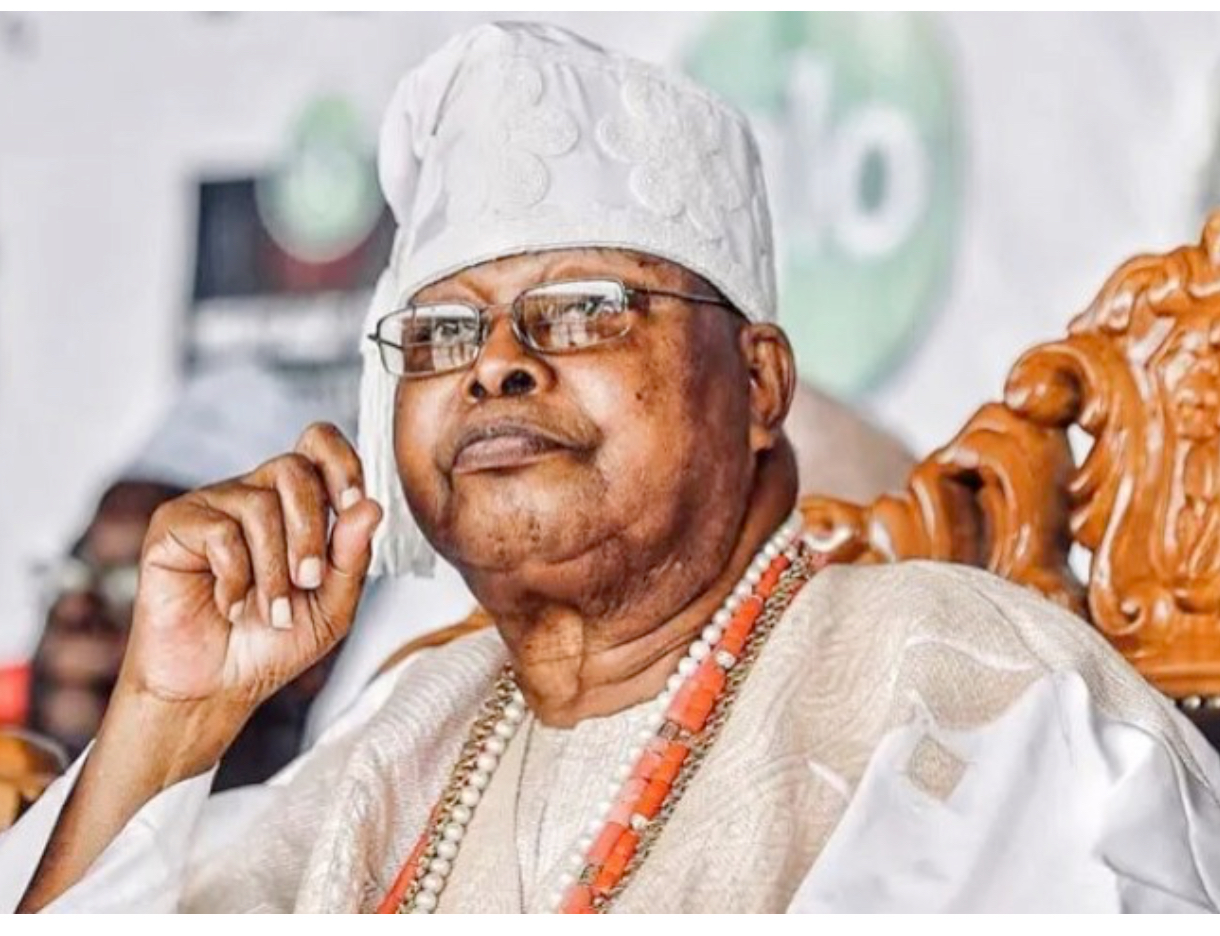


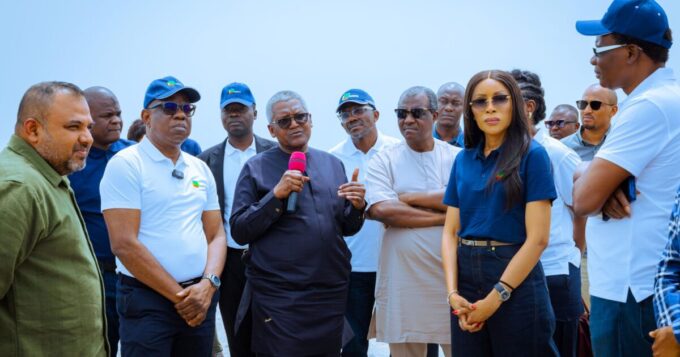
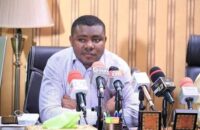
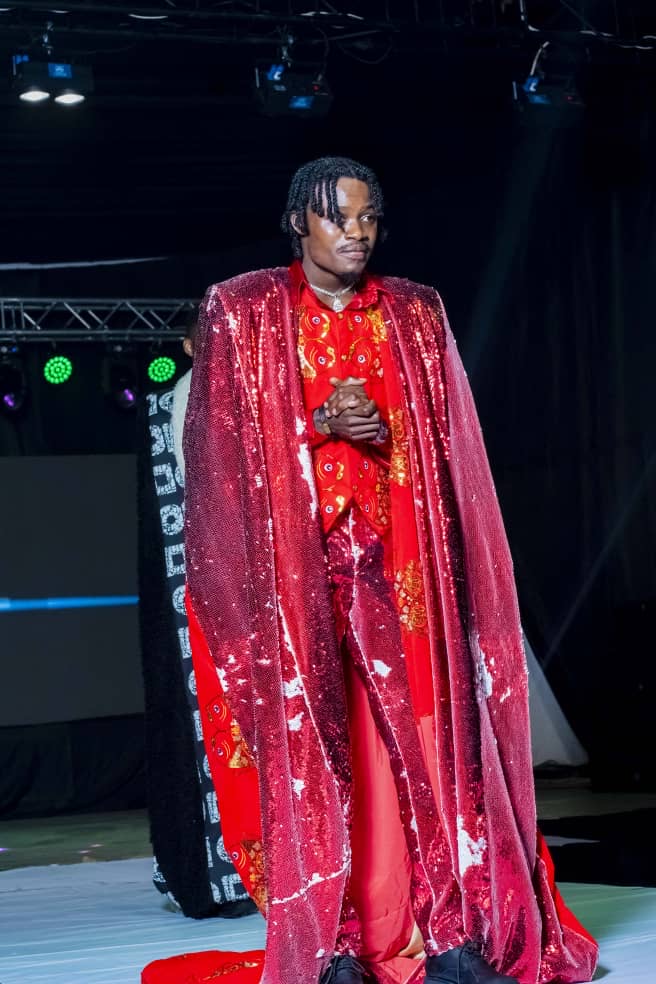
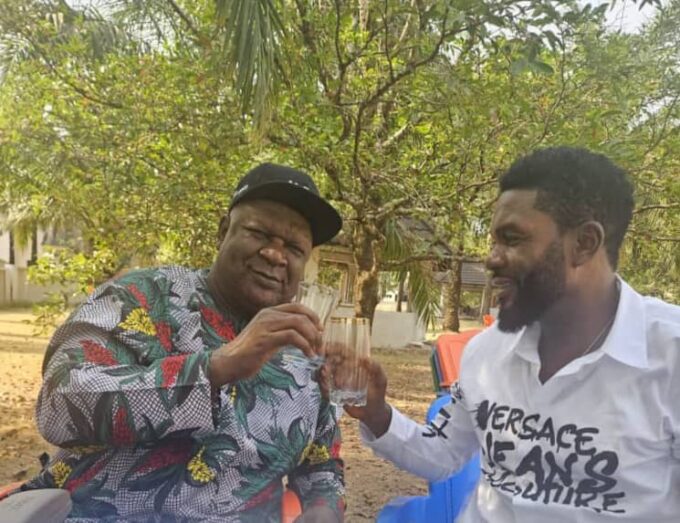
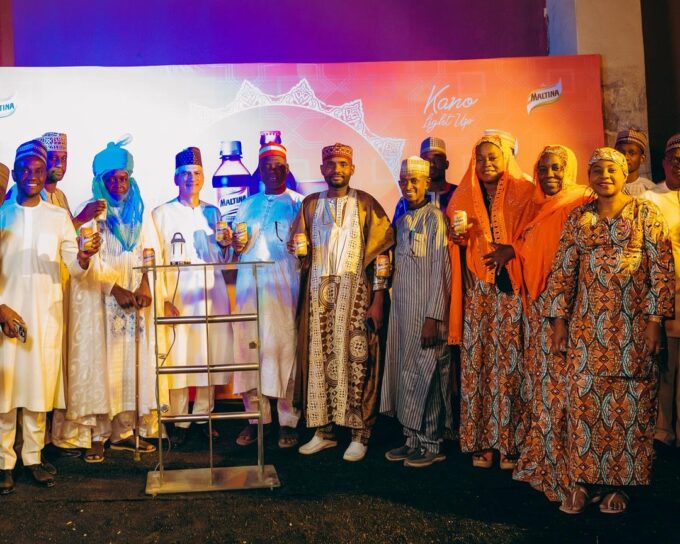



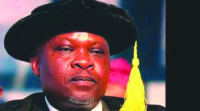
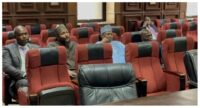
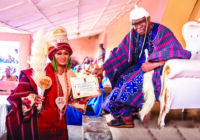
Leave a comment